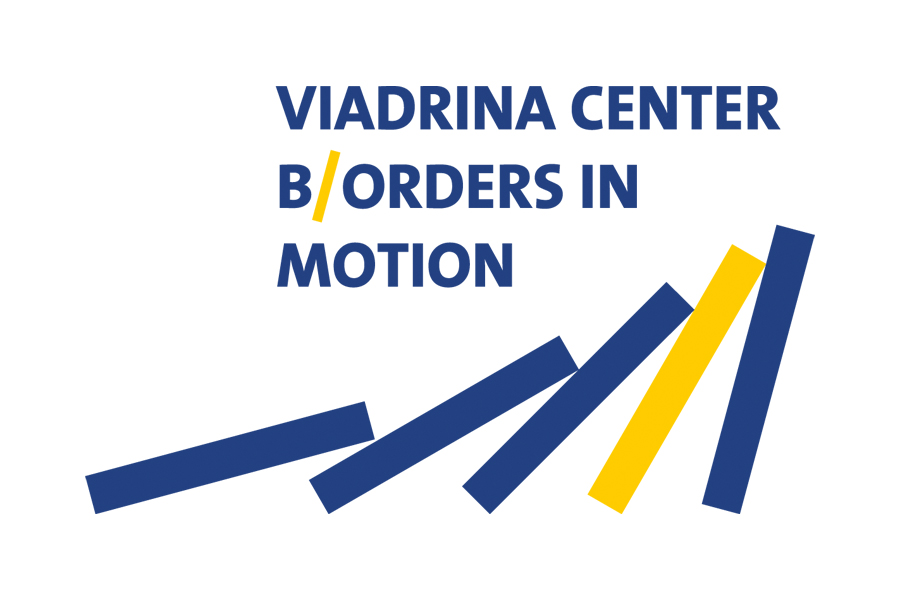Borders, Wars and Congresses: The Negotiation of State Reorganisations in East Central Europe in the 20th century
TEXT
Project lead:
- Prof Dr Dagmara Jajeśniak-Quast (Director of the Viadrina Center of Polish and Ukrainian Studies VCPU)
- Dr Frank Grelka, VCPU
- Dr Klaus Richter (University of Birmingham)
Research team:
- JP Dr Tim Buchen
Cooperation partners:
- Prof Dr Kerstin Schoor (EUV)
- Dr Mark Keck-Szajbel (EUV)
- Prof Dr Stefanie Schueler-Springorum (Technical University of Berlin)
- Dr Robert Brier (German Historical Institute Warsaw)
- Prof Alexander Maxwell (Victoria University of Wellington)
Funding institution:
European University Viadrina
Project duration:
October 2013 - October 2016
Publications:
- Frank Grelka: Nationaljüdische Akteure in Polen und Litauen nach dem Großen Krieg, in: Matthias Weber et al. (Hg.): Nach dem Großen Krieg: 1918-1923, München: De Gruyter 2017, S. 65-86.
- Tim Buchen/ Frank Grelka (Hg.): Akteure der Neuordnung: Ostmitteleuropa und das Erbe der Imperien, 1917 - 1924 (Interdisciplinary Polish Studies, Band 4), Berlin: epubli GmbH 2016. Open access: https://opus4.kobv.de/opus4-euv/frontdoor/index/index/docId/239.
- Klaus Richter: Displacement without Moving. Secession, Border Changes and Practices of Population Politics in Lithuania, 1916-1923, in: Tomas Balkelis/ Violeta DavoliŪte (Eds.): Population Displacement in Lithuania in the Twentieth Century, Leiden/ Borsten: Brill/ Rodpi 2016, pp. 62-88.
Project description
A Europe of nation states had no precedent in East-Central Europe in 1918 and was by no means without alternative. Whether and which nation states would exist in which form after the collapse of the great empires was a game with an open outcome. For what became a matter of course in Europe in the years 1944-1949 and 1989/91, namely the national organisation of states whose populations largely belonged to the titular nation, could not have been foreseen by contemporaries at the end of the First World War. While the historiography of East Central Europe has dealt intensively with the struggle of national movements against imperial states before 1918, their conflicts with each other after the war have been studied just as little transnationally as the struggle of imperial actors against the new nation states. How did non-state representatives participate in the negotiation and establishment of a new order? What ideas did they represent and how did these ideas change in the process of establishment?
The research project investigated these key questions at the Centre for Interdisciplinary Polish Studies (ZIP) in three interlinked sub-projects. It analysed the interaction of the "white international" (Tim Buchen) with military and political entrepreneurs who acted on behalf of the new nation states in East Central Europe (Klaus Richter, external collaborator at the University of Birmingham not financed by project funds), as well as with Jewish national actors from the Russian Empire who participated in the establishment of statehood in Poland and Ukraine (Frank Grelka). Viewing the events from three perspectives and conceptualising them as an open-ended process made it possible to redefine the wartime, post-war and interwar periods and to deconstruct powerful concepts such as "Central, Intermediate and Central Europe" in praxeological terms. The central question at the centre of the project was the relationship between international diplomacy, the practice of rule and concepts of space in the drawing, shifting and legitimisation of state borders in East Central Europe. By analysing this debate about spaces, borders and their international recognition, further insights were gained into nationalism, imperialism and state formation as well as the connections, interdependencies and transitions between Eastern and Western Europe.
As part of the three-year research project, the two project team members, in cooperation with the "Phantom Borders in East Central Europe" competence network and PD Dr Kai Struve (University of Halle-Wittenberg), organised an international academic conference in October 2015 entitled "Past Spaces - New Orders. The Legacy of Multinational Empires and State Formation in Eastern Europe 1917-1923". The results of this conference were included in an anthology edited by Tim Buchen and Frank Grelka entitled "Akteure der Neuordnung. East Central Europe and the Legacy of Empires 1917-1924", published as volume 4 of the "Interdisciplinary Studies" series of the Centre for Interdisciplinary Polish Studies. The conference volume uses seven case studies to show how local actors influenced legal, political and military reorganisations between the Baltic Sea and the Adriatic coast. In this trilingual (German/Polish/English) volume, new research approaches by young academics shed light on the impact of East-Central European experiences on international history in the post-war years beyond Versailles diplomacy.
